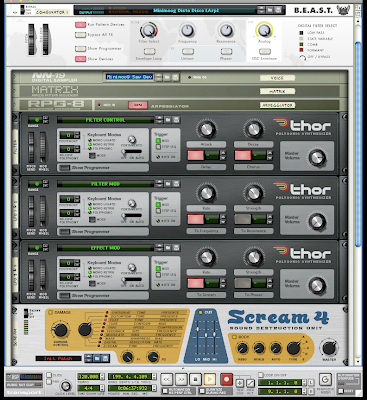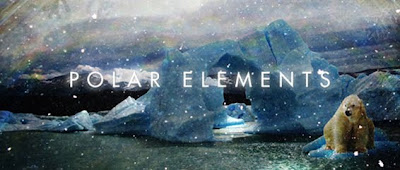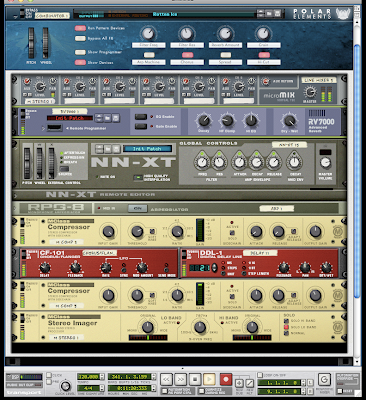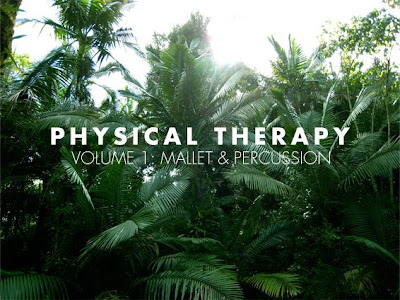
I've been wanting to interview New Atlantis Audio ever since picking up their Polar Elements ReFill the week it came out. This company seemed to come from nowhere with stellar sound design work and incredible graphics... and their website didn't answer very many of those questions. No background, no base city, just quality sounds for a good price. So needless to say I was psyched when Theodore Jordan of N.A.A. agreed to my interview, here it is:
- Who's behind New Atlantis Audio and where are you based?
I'm Theodore Jordan and I'm the main person behind NAA. I'm currently living in New York City. I collaborate with a handful of people scattered around the US, mostly in Boston. My buddy Francis up there was helping out a lot in the beginning but he's a real-life scientist with a proper job now so it's pretty much just me at this point as far as sound design goes. Thanks for having me!
- How did you get started in sound design and why did you choose the Reason platform for your patches?
This is a fun first question because my foray into this whole sound design/computer/Reason mess is one big intertwined ball of snot. I'll try to make it as concise as possible...
I started playing music really young, maybe at 4 or 5 years old. But instead of becoming a budding prodigy, I tolerated lessons and sheet music and spent most of my free time plugging effects pedals into karaoke machines and just making a whole lot of noise. By the mid/late 90's I'm playing bass in some indie rock bands, playing some jazz and get into synths and samplers. It was really foreign territory to me. Nobody I knew was into this stuff so it was a really personal thing for me. I didn't listen to electronic music at all. It was pretty pure exploration. I could make music by myself for the first time and I really loved that. Over the next few years I amassed a bunch of gear and got heavily into sampling.
Music was still very much a hobby for me at this point, I was an outdoors guy and was studying to become an arborist. My love of the outdoors took me across the country to Seattle. I had a neighbor there who was into MIDI and synths too, he was also into computers. I literally didn't even own a computer at this point and would check my email over dial-up from my Sega Dreamcast. That was my "computer". One day he shows me this crazy new program with rackmount synths, samplers, drum machines… and you could plug them all into each other! It was Reason version 1 and it just come out. I was blown away. Reason 1.0 was literally the first real piece of computer software I ever used, music or otherwise. This kickstarts me on computers and I max out a credit card to buy a Mac and Reason. Haha, and shortly after start selling off my hardware to pay for it. Next thing I know I'm way into audio software, but also getting into graphics and teaching myself to code for the web. I wind up coming back to New York and enrolling in art school.
I take a random unpaid internship for a few credits doing web design work. Just so happens that the company was a music production house and had one of the first big online sample libraries. One day after about 4 months of working for free the boss asks me to call around to find a replacement for the main sound designer/composer dude. He stormed out and quit and left a bunch of half-finished projects behind. Expecting to be laughed out of the room I mention that I've been into the music thing for a long time and maybe I could finish up his work until they found a replacement. Really, I was half-kidding but we end up having a 5 second conversation that went something like this:
"Oh yeah? Well if you can finish all the bullshit he left behind then you can have his job."
When are they due by?
"Last week."
So I skipped school and worked completely through the night. I finished up at about noon the following day and the job was mine. In one night I went from unpaid art student to full-time sound designer. I stayed there for another year or so before they switched gears and sold the company. I made tons and tons (and tons) of loops that they sold online. We put out a handful of sample CDs and we even had a rebranded version of Acid with my sounds all over it. I got to work on all sorts of stuff; some tv music, some little video games. It was a total dream job for a young kid and I learned a whole lot about everything from sound design to the web to running a business. Very, very lucky to have had that opportunity.
In a nutshell, that's how I got started in sound design.
In the decade since I've worked for some sound companies, done some neat freelance work and gotten very much into field recording. Over the years a lot of gear and software have come into and out of my life but the single thing I've used and stuck with all this time is Reason. When I decided to get back into making soundware I knew I wanted to do some stuff for Reason. The Combinator is obviously huge from an instrument creation standpoint. And the ReFill format is about as clean as it gets for distribution. It's a great community to be a part of as well. The best ReFills are coming out of the small indie shops right now. A great thing about Reason is that people from every conceivable musical corner are using it. I think there is a nice little spot for my work in there somewhere. My sounds definitely won't appeal to every Reason user, but the people who like them seem to really love them.

- Your refill B.E.A.S.T. features samples from some of the greatest hardware synthesizers ever made, including the Arp 2600, minimoog, Prophet V, MS-20, TB-303... when creating a refill like this how do you get all the synthesizer sounds together? Rent, borrow, beg, steal?
Ha, almost all of the above! Those recordings came from a project I was hired to work on up in Boston a few years ago. I was working for a studio and this group of doctorate students came by looking to rent some equipment. They were developing some new software sampler thing that could do some radical time stretching and granular synthesis stuff. In hindsight, similar to Alchemy from Camel Audio. So anyway, they wound up hiring me to record some source material for it. Luckily New England is really like ground zero for old synths. That's kind of where it all started 30 years ago so there's just so much crazy gear still floating around up there. I just started reaching out to people. I was looking on craigslist and ebay for synths being sold within driving distance and sending them an email like "Hey, I don't want to buy it but I'll give you some cash if you let me come sample it for a little while!" I wound up meeting a ton of cool people. The MS-20 was on an active Naval base. That guy had a bunch of great synths! I nicknamed him "Captain Cutoff". I was driving around New England and meeting all these people. It was a blast. Anyway, they never got that sampler to market so last year I made a deal with them and got the rights to all of my sounds back. There's loads of unused material in there that I'll probably use for other things. The sources for Polar Elements were in there as well.
- Both your Physical Therapy and Polar Elements ReFills feature field recordings prominently, what gear do you use to capture your field recordings?
I have a modest little field recording rig. For a handheld all-rounder I blew my holiday bonus on a Sony PCM-D1 a few years back but not long after I tried a PCM-D50 and honestly felt like it was just as good for what I was doing so I "downgraded" and have been very happy with it. I actually like it much better. I also have a more traditional single point stereo setup, a matched pair of condensers, a shotgun and a very nicely modified Tascam HD that I got on a trade. I want to start capturing in surround now so I may trade up to an 8 track Fostex machine. It's so bulky though. I have this pair of tiny condensers that are meant to be worn on your body. I am experimenting with mounting them on my head for pseudo binaural stereo. I use a little Sonic Studios battery pack. I honestly don't usually recommend field recording gear because there are so many factors to consider. I think comfort is too often overlooked. You're carrying this stuff around, holding it for hours, sometimes you're wearing it. You may need to use it in the rain or in the dark. Once you hit a certain price point the differences in quality shrink and then it becomes more about usability. Get very comfortable headphones! That's my only gear recommendation. =)
- Speaking of field recordings on the Propellerhead's Forum you recently posted about your use of an old upright bass recorded outside in the cold winter for the Polar Elements ReFill, where do you come up with the ideas for your field recordings?
I'm one of those people that believe you can borrow a special moment in sound and enjoy it again later just like a photograph. Polar Elements was originally just going to be part of a fairly straightforward field recording series for picture. I came across one of those big images that are made up of a ton of smaller images, not sure what they're called, a photomosaic I think? Anyway, I thought well what if I can take these small moments in sound and combine them into some larger whole in the same way? That's kind of where the Polar Elements sounds came from.
So to use that upright bass as an example; We sat outside bowing this poor frozen bass in the snow. Then I stretched a tiny chunk of it a mile long, mashed it with more tiny chunks - maybe the sound of wind or ice cracking - figured out how to loop it and turned it all back into some new instrument that still has those moments buried inside it. In fact, I think the resulting patches portray those moments better than the original source material in a lot of cases. We spent one afternoon inside a cave in New Hampshire banging on giant wind chimes, all to use one tenth of a second of the audio.
Physical Therapy comes from a whole different direction. I had a bunch of footage from Puerto Rico just collecting dust. I was sort of struggling on the percussion sounds I was making so I just threw on some of those nature sounds in the background just to listen to something else and relax. Suddenly I'm designing percussion sounds just to go along with the field recordings and loving the results. I couldn't bare to not include them in the ReFill after that so I worked out a way to make them part of it and it just evolved organically into this strange tropical thing.
There is two-way inspiration happening all over the place with those but sometimes I just want to sleep at night too. I used to go outside and record the ocean for an hour or so at night and loop it on the stereo while I slept. Then I'd wake up in the morning, delete it and do it all over again the next night. We lived right on the water and one night on my way out my wife was like "why don't you just sleep with the window opened?" Haha, she probably has a point there. I guess for me field recordings have always offered a bit of escapism, like a way to revisit places or travel without going anywhere.

- A portion of the proceeds from your Reason ReFills goes to charity, different charities for every ReFill. You've donated to the Shriner's Hospital for Children, World Wildlife Fund, and Camp Sunshine - I think this is a great idea and I'd imagine it helps you sell more refills, I know I've bought everyone one of your refills because even when I'm low on money I can justify that some of the money is going to charity. How has the reception been to this and how do you pick the charities?
Well big thanks for being supportive of it, but it actually seems to have no effect on sales at all. Only a small fraction of my customers even notice it, and an even smaller fraction have bothered to register or take part. I actually get a little worried about it sending mixed messages sometimes, like are people trying to figure out if we are sound designers or fund raisers? I don't know. It's still definitely something I will always continue to do, but I'm starting to see potential negatives to publicizing it. Doing charity work is great, but doing it in silence can be even better. The last thing I want is people getting the impression that it's there to boost sales, because it's not the case and it definitely isn't the result. I liked the idea of people helping me to find new organizations to give to but there's just not much feedback in that area at all. I might rethink the whole thing soon. Thanks again though for being behind it, definitely means a lot to me.

- I absolutely love your logo! It has a iconoclastic look to it, reminiscent of monetary design and ancient Greek motifs. Who does your graphic design work and did they also design your website?
Thanks! I do all the graphic design and the website. I've always been a typography and design geek but I can't take much credit for the logo itself as it's just a hybrid of stock vector art mostly. I still do some freelance design work so it's always a struggle to not constantly redesign the website. I stripped it down to almost nothing and try to just leave it alone.
- New Atlantis also does for-hire sound design work. Is it difficult to find the clients for this type of work and how would you compare it to designing ReFills and can you give us an example of some of the for-hire jobs you've done?
Well it's definitely not the kind of thing you'll see an ad for in the paper. I have a small group of people I've known for a while who throw me little bits of work for specific types of things. Some neat work in audiobooks and art installations. I used to do more "normal" work, sounds for television mostly, but lately it's been oddball stuff.
With client work your goals are clearly defined. The processes in between are basically the same, you're using the same tools. There's just rules in place. I've never sat down and said "I am going to make a Reason ReFill that has x number of patches, sounds like y and will go on sale on date z." I just let it evolve naturally and sometimes a cohesive collection is born. I don't really make much music for public consumption anymore so these ReFills are sort of my albums and the patches are my songs. Corny, but kinda true. All of my ReFills are very thematic/conceptual or whatever you'd call it. When doing those, it's my concept. With client work, it's their concept. That's the major difference I guess.
I'm working on one project up in MA that is a pretty regular exhibit of modern art pieces; sculptures, paintings etc, but they are having me hide microphones inside the pieces and throughout the space. The idea is to take in people's commentary on the art, do all sorts of weird stuff with the audio on the fly and then spit it back out into the room through the sound system, along with my own ambient soundscapes, maybe some beats. And that becomes sort of an exhibit unto itself. A realtime soundtrack I guess. The trick is timing, and having enough of a delay so there isn't feedback, but getting sounds back into the room soon enough so that people can hear their own voices before they leave an area. Ha, I'm hiding up in the rafters basically missing the whole show, should be fun.

- Your Physical Therapy ReFill has some absolutely fantastic mallet patches, which I was actually looking for at the time it came out. What was your process for recording the different samples used in the refill and what different instruments did you use?
Thanks! That's great to hear because all of the instrument sounds in there were actually created with synths. The only "real" sounds are the nature sounds. I love tuned percussion and I hadn't had the chance to mess with acoustic modeling in a long time so it was a lot of fun to make. A lot of people seem to think the mallet sounds are real sampled marimbas and stuff so I guess it came out good.
I used Sculpture, Reaktor, a Yamaha VL-7 and the Applied Acoustics thing. I borrowed a VSynth too but didn't use it much. Most of the sounds are combinations of tones from those sources. I'm pretty happy with the way it turned out, especially considering each instrument contains only a single sample.
Might be worth mentioning that that all of the instruments in all of my ReFills contain only a single waveform each. That was a goal of mine from the beginning, partly because I absolutely hate multisampling. I just get so bored with it. I also love the old school days of sampling and working with hard limitations. It was definitely a challenge at times. For mallet and bass it's not too bad, but Polar Elements was a lot of work. Some of the sounds in there are pretty complex and huge sounding and people are usually shocked to find out it's coming from a one second blip of noise.
- Speaking of samples, what software do you use to trim your audio down?
Well for years I was a diehard Soundtrack Pro fan. But sometime (in v2 it seems) this really dangerous bug came about in it and unfortunately I've had to stop using it. When working with mono files you can randomly get blasted with an outrageously loud white noise spike in the right channel. The meters read at over 600db! Ha, I don't know if that's even physically possible but it's definitely LOUD. I've gotten hit with it a few times and have had to stop working for days or even weeks at a time to rest my ear. It's really serious and if you're wearing headphones (which I do often), could easily cause permanent damage. May already have for all I know. Scary stuff. I'm trying WaveEditor from Audiofile Engineering these days. I'm still getting used to it and I miss a lot of STP's features. I really miss the effects. Anyway, WaveEditor it is, for the time being.
- What advice would you give to someone that wants to get into Sound Design and is there anything you wish someone had clued you in on when you began that you had to learn "the hard way"?
Well there are certainly some markets for sound designers that can provide a fairly normal and stable career, the video game industry is probably a good example. There is always work in sound for picture. It's tough to break in on the large scale, everyone I know who have "Hollywood" type sound jobs did the traditional thing of working for free making coffee and running wire for years and gradually worked up through the ranks. All these industries use a set of very specialized tools too, in addition to the standard musician's software, so do your homework and learn the voodoo. I can definitely vouch for the benefits of the good old fashioned internship.
I guess my only real advice might be to try to only do work that you love, try hard to stay happy. That sounds cliche but there's nothing worse than trying to force yourself to be creative for something you aren't into. I worked at a jingle house once making awful music for awful television commercials and it sucked the life out of me. I couldn't enjoy making music on my own after a solid work week of that and I was pretty miserable. Don't get me wrong, I can think of a million worse jobs than writing music for tv commercials so it's not a lack of appreciation. I've been very lucky. Just feel good about what you're creating is all.
Oh, and fuck gear. Seriously. It's meaningless. All of it. Pretend it doesn't exist. Worry only about your ears and your ideas. You will actually be needing those.
- What is New Atlantis Audio working on currently and can we expect a new Reason ReFill coming out from you guys in the near future?
There's 3 or 4 ReFills in progress that I'd love to get wrapped up as soon as possible. Not sure when exactly though, just "soon"? =)
Still focusing on sample-based stuff, that's just my thing. I'm buying some land up in the woods in the middle of nowhere and building a house on it with my wife and our friends so probably expect a lot of field recordings in future releases. Really looking forward to moving out of the city.
Thanks for the great interview Theodore! I can't wait to find out what New Atlantis Audio releases next. And as a gift to Resonant Filter readers for the month of April if you use the code "RESFILT" at check out you'll receive a 25% discount on their ReFills. How cool is that!

No comments:
Post a Comment